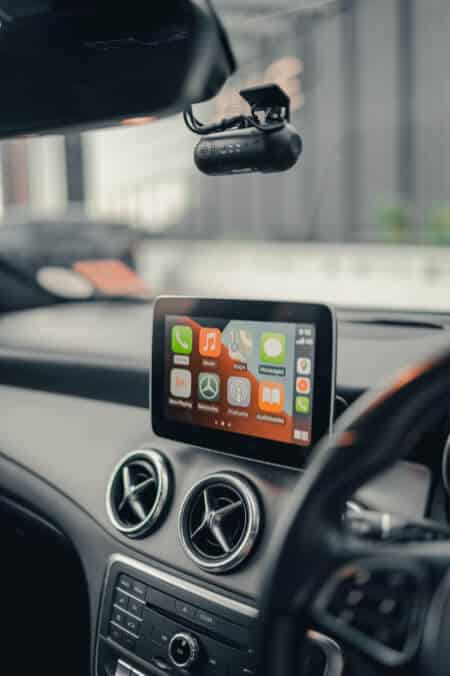Car monitoring has come a long way, but it isn’t exactly the point where we can have a camera in our cars that run 24 hours a day, seven days a week.
We’ll come right out of the gate by saying that a 24-hour security camera in a vehicle would involve a power supply that can last for days on end and a WIFI connection.

Getting all those in your car is impossible since car batteries have a maximum lifespan of 24 hours. Dashcams usually offer partial surveillance, but they are only on when the car is.
However, you have some options when it comes to monitoring your car. As said before, technology has come a long way.
Or, you can look at some budgeted methods. This post serves as your guide to such alternatives.
Dash Cameras Are Meant For Your Car
Simply put, 24-hour security cameras are not meant for vehicles. Dashcams, meanwhile, are specifically designed to integrate with the electrical system of a car.
They will continuously record footage as long as the car remains on.
Obviously, you’re not going to leave your car on when you’re not using it, so it isn’t ideal. Dashcams have a large amount of memory able to store up to 48 hours of footage. Security cameras differ from these due to the fact that they are always recording.
There are several ways to install a system of such on the exterior or interior of your home. For the best surveillance of your car, you can have a camera installed around the area you keep your car -be it in your driveway or garage.
Inside your home, the cameras can have a 24-hour power system and access to a wireless network. Smart TVs are able to receive live footage from them, which are better kept in the home than the car.
Why is it so Difficult to Put a Security Camera in Your Car?
We’ve already stressed the issue of power and network connection for a security camera system in your car. Even if you do manage, you will more than likely experience lag, or latency issues, on your footage.
A stable power supply is the main issue. You may be able to connect to your home WIFI from your driveway or garage. Camera companies haven’t cornered the market on cameras for vehicles that have a sufficient power system.
In the past, there was the OwlCam which did just that by utilizing cars’ OBD-II adapter. These cameras would last for about a day before switching off when the cars’ battery reached a low level.
The company has been sold, and the product has been discontinued, but it was the only thing close to a surveillance system for vehicles on the market.
What Are Good Cameras For Monitoring Your Car?
The most common way to incorporate 24-hour surveillance systems on your vehicle is by having your home security system include your car. Homes that utilize security cameras usually have one with their car in view.
If the garage is detached, then cameras may be installed on it with the vehicle or entrances and exits in view. You can rest easy knowing that these cameras have both the network connection and power necessary for 24-hour monitoring.
Now, there are specialized home security systems where you can access it and view footage from your smartphone.
This would be ideal if you were away from home and needed eyes on your car. Just remember to avoid having your neighbors in your cameras’ line of sight. That can cause you some legal headaches.
Another popular car monitoring system people use is GPS trackers.
You can forego recording footage for 24-hour real-time tracking of your car with a battery that lasts for months.
This can also be accessed from your smartphone or device.
For those really looking to get 24-hour footage of your car when not using it, they can use the phone on their car by attaching it to a solar panel charger.
At least it would be a budgeted way if you already have a smartphone with a good camera and memory.
Does Having a Camera in Your Car Affect Your Auto Insurance?
Car insurance providers are known for giving several discounts. One of those discounts is based on the safety measures of your vehicle.
Some car insurers provide premium reductions for those that have added safety features like anti-lock brakes and stability control. A GPS tracker can even help lower your premiums since they assist in recovering your stolen car.
However, they are not known to do this for dash cams.
Dashcams can play a heroic role in an insurance claims process by providing video evidence of the accident and who was at fault.
That’s why having a GPS 24-hour monitoring system is much easier than a 24-hour camera in your car.